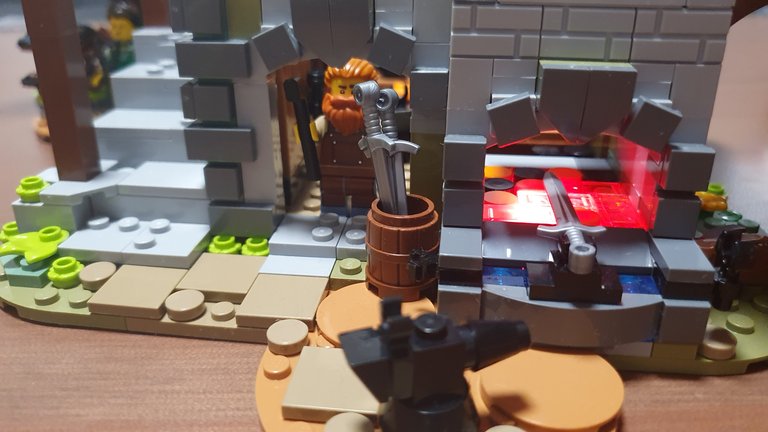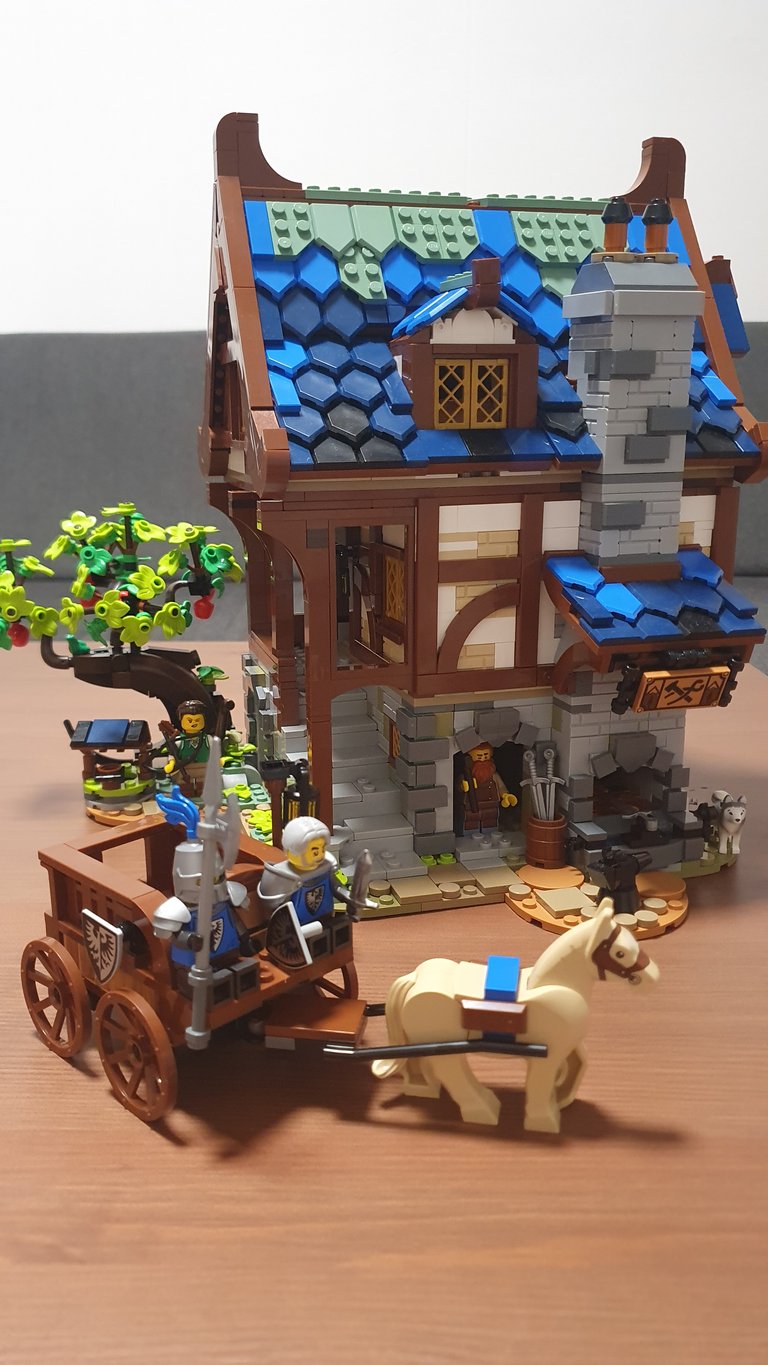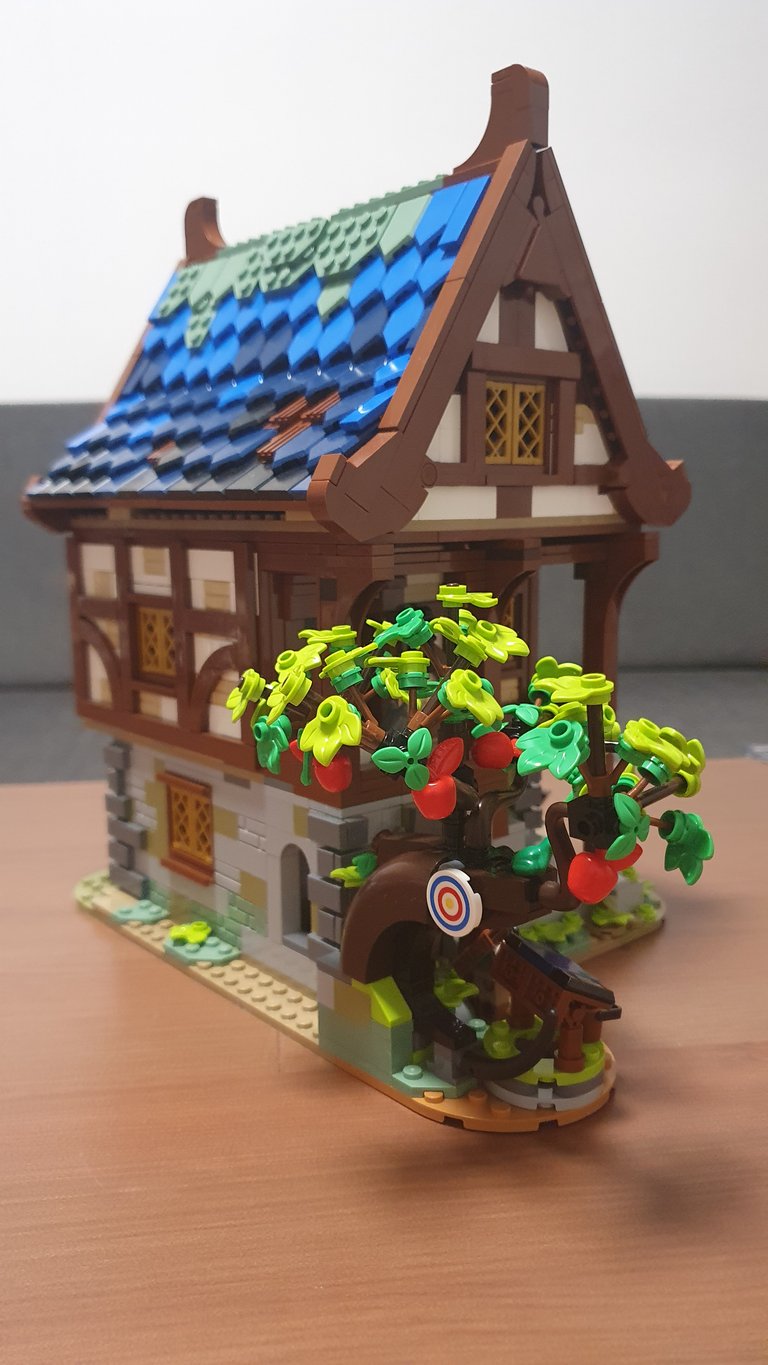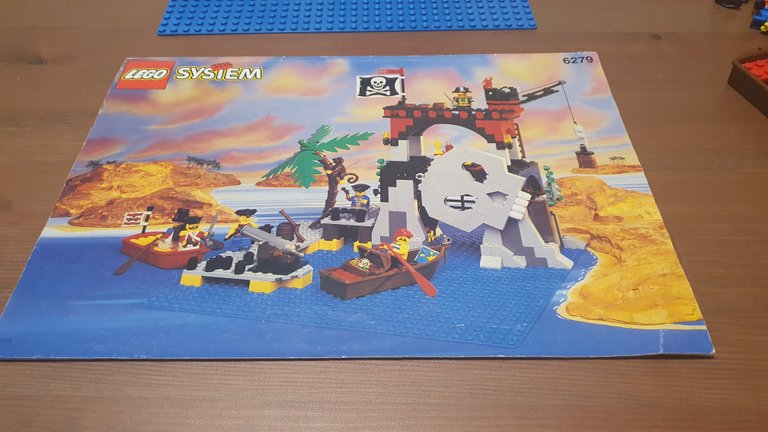For the last few years, the internet has been trending about how buying Legos is a great investment opportunity. But will there be opportunities for 2024 and beyond? In this article, I'll share with you a few weeks of research...
I come from the Czech Republic, which can be considered a mecca for Lego collectors. It has a great tradition here for many years. Czech native Michal Křeček holds the world record with a collection of over 6000 sets. Michal Saviory, one of the world's biggest sellers of individual bricks and a great polularizer of lego in the Czech Republic, also comes from the Czech Republic. Less known information is that the world's most popular trading platform for selling lego - bricklink - was also programmed and launched by a Czech.
The competition on the Czech market is really big. Officially, there are about 250 entities in the lego business, some of them have tens of millions of CZK in bricks (1$ = 23,17CZK) and if you look at auction forums, bazaar groups etc., you will find that thousands of people are doing business in the unofficial way (avoiding tax liability). So the market in the Czech Republic is oversaturated, but here I will summarize some insights that might apply to yours.

There are two most common models in the lego business. Speculation on building blocks and selling bricks. Both have many pitfalls. What both have in common is the high space requirements. The boxes are big and after a while your apartment stops being big enough, and it's even worse with the bricks as there are over 60 thousand different types, shapes and colours. In order to efficiently pick orders, you need to have the perfect system for this and have everything carefully divided in boxes and shelves.
Lego sets hustle
You hear it from youtubers, you read it in themed articles. Some lego sets have appreciated 100% or more in 3-5 years. Assuming of course they are complete, unplayed and unopened. As with graded collector cards, the condition of the box has a scale of 0 to 10 and the slightest damage knocks the value down. Simply opening the set will devalue this "investment" by 30% or more.
Inset: I'll add my personal factual comment on the appreciation and hype around investing in Legos. Absolutely everything has appreciated in value over the last 5 years due to covid money printing.
When I was researching the appreciation of my 25 year old open and played sets (pirates + castles), I found it to be no hit parade. On average it went up +100~130%, which didn't even come close to covering inflation. The minifigs themselves, which are currently the most valuable thing about the sets, did even worse, and on average the vast majority of them traded for 3-5$. By comparison, Lego is currently releasing special collector's editions of minifigs and selling one for $5...

If you decide to buy boxes, the question is whether to buy large, small, or medium ones. Historically, the smaller ones (at ~$30) have tended to have the best appreciation. Also, as a rule of thumb, the smaller the more liquid.
When you buy, you should think about how you will store the sets. You don't want the box rating to drop due to carelessness, so you need a dry environment and darkness. The sun will dry out the paint and we can imagine what humidity will do to the cardboard too. We don't stack boxes so the bottom ones don't warp, and storing them so they don't dent the walls over time even from their own weight is a bit of a science. Some collectors rotate them at intervals, for example.

When to buy is a science too. We have no idea how many sets Lego is releasing. But as a rule, with a few exceptions, the sets have a shelf life on the market. They have to be paid for by the manufacturer, so they are usually made and sold for several years. The price starts to rise after production ends and distributors run out of stock.
Lego itself sets the prices quite high and over time it's always better to get the kits in various department stores and eshops, where you can easily find prices 20-30% lower than the official ones during the Christmas season, for example. If you want to speculate on the price, you have to wait for that good purchase price.
You can then choose various auction and sales sites to sell and realise your profits. For example: bricklink, ebay, Facebook groups, or its marketplace.
Bricks hustle
You may not have known it, but every brick has a value. You can buy them individually, or buy them by the pound, pick the more valuable ones out of the mix and then resell what you don't need by the pound. Or you can go to the trouble of sorting it all out and selling it by the brick. This is what the bricklink platform is for.
The process of sorting, storing and picking orders is very time and space consuming. If we are talking about sets, for say $40k, you can imagine a van full of boxes. For basic cubes worth $40k you need a few dozen meters of shelving and at least 100m2 of warehouse. If you are selling single bricks on bricklink and going after turnover, you need as wide a portfolio as possible. When you have "only" a few hundred types of dice, a larger customer will prefer to choose a retailer with a wider selection and will prefer one large order over several small ones. Because of the cost of shipping.
A good dealer tries to make at least a 100% profit on each brick. He does buyouts, for example of incomplete or damaged sets, takes advantage of discounts on new ones, or can make a good estimate of the per-pound price when buying out based on the nature of the brick.

Nostalgia led me to write this article. I built a few vintage kits and bought this newer kit that accompanied you in the photos. I wanted to see how kits have changed over the decades... and I have to say, I felt like I was 13 years old again.
Česky
Posledních pár let na internetu trenduje, jak je nakupování lega skvělá investiční příležitost. Budou tu ale příležitosti i pro rok 2024 a ty následující? V tomto článku se s Vámi podělím o několikatýdení research...
Pocházím z České republiky, která se dá považovat za meku sběratelů lega. To má zde již spoustu let velkou tradici. Český rodák Michal Křeček drží světový rekord s kolekcí čítající přes 6000 setů. Z Čech pochází také jeden z největších celosvětových prodejců jednotlivých kostiček a velký polularizátor lega v tuzemsku, Michal Saviory. Méně známá informace je, že nejpopulárnější celosvětovou trading platformu pro prodej lega - bricklink naprogramova a spustil také Čech.
Konkurence na českém trhu je opravdu velká. Oficiálně zde v lego byznysu podniká cca 250 subjektů, někteří mají v kostičkách vyšší desítky milionů korun (1$ = 23,17Kč) a pokud se podíváte na aukční fóra, bazarové skupiny atd., tak zjistíte, že tou neoficiální cestou (vyhýbající se daňové povinnosti) zde podnikají vyšší tisíce lidí. Trh v České republice je tedy přesycen.
V lego byznysu jsou dva nejrozšířenější modely. Spekulace na stavebnice a prodej kostiček. Obojí má mnoho úskalí. Co má obojí společné jsou vysoké nároky na prostor. Krabice jsou velké a po chvíli Vám přestane být dost velký byt a s kostičkami je to ještě horší, jelikož jich je přes 60tis různých druhů, tvarů a barev. Aby jste mohli efektivně kompletovat objednávky, musíte mít pro to perfektní systém a mít vše pečlivě rozděleno v boxech a regálech.
Obchodování stavebnic
Slyšíte to od youtuberů, dočtete se to v tématických článcích. Některé lego sety se za 3-5 let zhodnotili o 100% a více. Samozřejmě za předpokladu, že jsou kompletní, nehrané a neotevřené. Stejně jako u gradovaných karet má stav krabice škálu od 0 do 10 a sebemenší poškození sráží hodnotu. Samotné otevření setu tuto "investici" znehodnotí o 30% a více.
Vsuvka: ještě zmíním moji osobní faktickou poznámku ke zhodnocování a hypu okolo investování do lega. Za posledních 5 let se zhodnotilo naprosto všechno, kvůli covidovému tisku peněz.
Když jsem zkoumal zhodnocení svých 25let starých, otevřených a hraných setů (pirates + castles), tak jsem zjistil, že to žádná hitparáda není. V průměru to šlo o +100~130%, což ani zdaleka nevykrylo inflaci. Samotné minifigurky, což je aktuálně na setech to nejhodnotnější, tak je to ještě horší a v průměru se obchoduje naprostá většina z nich za 3-5$. Pro porovnání, aktuálně vydává Lego speciální sběratelské edice minifigurek a jednu prodává je za 5$...
Pokud se rozhodnete kupovat boxy, nabízí se otázka, jestli ty velké, malé, nebo střední. Historicky měli nejlepší zhodnocení spíše ty menší (za ~30$). Z pravidla také platilo, čím menší, tím likvidnější.
Když už nakoupíte, měli by jste promyslet, jak budete sety skladovat. Nechcete, aby kvůli nešetrnosti klesl rating krabic, takže potřebujete suché prostředí a tmu. Slunce barvy vyšisuje a co udělá s kartonem vlhkost si umíme představit také. Neskládáme krabice na sebe, aby se ty spodní nedeformovali a skladovat je tak, aby se nepromáčkli časem stěny i od vlastní váhy je trochu věda. Někteří sběratelé je například po intervalech otáčí.
Kdy nakoupit je věda také. Nemáme představu, kolik setů Lego pouští do oběhu. Z pravidla až na pár výjimek mají ale stavebnice na trhu životnost. Musí se výrobci zaplatit, takže se většinou vyrábí a prodávají několik let. Cena začíná stoupat po ukončení výroby a po vyčerpání zásob distributorů.
Lego samotné nasazuje ceny poměrně vysoko a v průběhu času vždy lépe seženete stavebnice v různých obchodních domech a eshopech, kde například v období vánoc bez problémů narazíte na ceny o 20-30% nižší, než jsou ty oficiální. Pokud chcete spekulovat na cenu, musíte si na tu dobrou nákupní cenu počkat.
K prodeji a realizaci zisků si potom můžete vybrat nejrůznější aukční a prodejní servery. Např.: bricklink, ebay, facebookové skupiny, nebo jeho marketplace.
Obchodování kostek
Možná jste to nevěděli, ale každá kostička má svojí hodnotu. Můžete je po jednotlivých kostičkách nakupovat, nebo je nakupovat na kilogramy, vybrat si ze směsi to hodnotnější a potom co nepotřebujete zase na kilogramy prodat dál. Nebo si můžete dát práci, vše roztřídit a po jednotlivých kostičkách prodat. Slouží k tomu platforma bricklink.
Proces třídění, skladování a kompletování objednávek je velmi náročný na čas a na prostor. Jestliže se bavíme o setech, za řekněme 40tis$, můžete si představit dodávku plnou krabic. Pro základní kostky v hodnotě 40tis$ potřebujete několik desítek metrů regálů a minimálně 100m2 sklad. Pokud prodáváte na bricklink jednotlivé kostky a jdete po obratu, potřebujete co nejširší portfolio. Když máte "pouze" pár set druhů kostek, větší zákazník si raději vybere prodejce s širším výběrem a upřednostní jednu velkou objednávku, před několika malými. Kvůli ceně za dopravu.
Dobrý prodejce se snaží, aby měl na každé kostičce minimálně 100% zisk. Dělá výkupy, například nekompletních nebo poškozených setů, využívá slevových akcí na těch nových, nebo umí dobře odhadnout při výkupu kilovou cenu podle charakteru kostek.
Oh, it's awesome to meet a fellow LEGO enthusiast! How long have you been collecting LEGO? I usually don’t buy new minifigures since they’re pretty pricey, but here in Austria, we have a Sunday market where people sell old LEGO, and I’ve managed to find so many figures for just 1€ each!Now, though, I’ve got a bit of a problem, I'm running out of space in my apartment for all my sets! I’ve picked up most of the affordable sets, so now every set I still want is over 200€.
I still think LEGO is a good investment. I've found a lot of old Star Wars sets, and they’re selling for a ton of money! That’s also why I haven’t opened all of my sets, some of them are likely to hold their value.
It’s definitely an expensive hobby, and I honestly don’t know how kids can afford it these days! 🤔
I’d love to see more of your sets if you post about them in a new article, I’m really curious to see what you have!
Are there enough of us lego lovers here to start a #lego group?
Otázka i pro @shandalar. Mělo by to smysl? Nějaké šíbování Lega mezi Rakouskem a Čechami například?
Existuje jedna možnost, jak to zjistit... zkusit to :). Mnohem zajímavější trh, než Rakousko je Německo. Pokud cestuješ, pravidelně, tak určitě není od věci budovat síť kontaktů.
Oh wow, I almost understood what you wrote! 😂 If I got it right, did you say there might be a way to try it and that we should stay in contact ?:) I've already noticed a few people here who collect LEGO… I’ll look through some posts, and maybe we could start a small community for LEGO fans. What do you think? @kraki
Necestuji vůbec.
Hi, I only collect D&D themed minifigures due to space. I like alternative investing and games... so I have ongoing shelves in my closet with MTG cards, various saeled boxes with Warhammer 40k, and I don't have as much space for lego. But I'm interested in short term speculation opportunities and arbitrages as the Czech market is very liquid. For example, some minifigures are trading on the European market at more than 100% premium over the US market...
I have a couple of sets (mainly Pirates) from my childhood that I dusted off, revised the missing and damaged bricks and am now assembling them. Since my second daughter was born, I guess I'll pass it on then 😄.
This is my favoured
Anyway, in terms of value for money, lego is much more affordable than it used to be. For example, this set cost ~$50 (25 years ago) and contains 350 bricks.
I bought the forge in the article for $150 and it contains 2145 bricks...